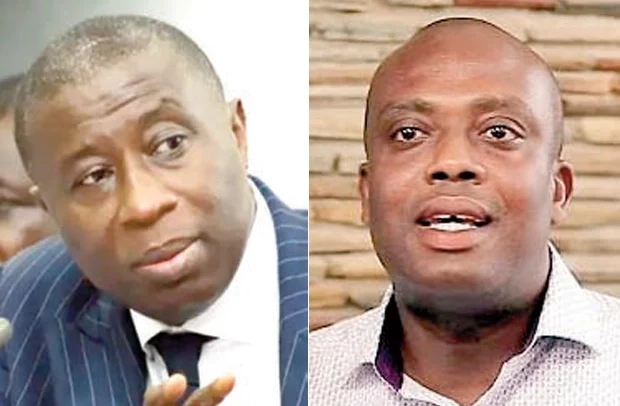Patrick Yaw Boamah, Thomas Nyarko Ampem
A lively back-and-forth characterised yesterday’s sitting of Parliament as Members of Parliament (MPs) from both sides traded sharp jabs over the 2026 Budget Statement, with accusations centred on economic mismanagement, investor confidence, oil revenue risks, and the government’s development priorities.
Taking his turn on the floor, Patrick Yaw Boamah, MP for Okaikwei Central, criticised the timing of the budget presentation, describing it as unprecedented and economically costly.
“From Kwesi Botchwey’s time through Baah-Wiredu and Osafo-Maafo up to Ato Forson, this is the first time a budget has been read in the evening,” he said.
“At 5:37 p.m., when it was read, our major creditors were asleep. Europe was at dinner, China was asleep, Australia was just waking up, and Ghanaians were on their way home.”
According to him, the timing contributed to a poor market reaction. He cited sharp depreciation of the cedi the day after the presentation, noting forex bureau rates of GH¢12.00–GH¢12.35 to the dollar. “It tells you how unresponsive our budget was to the market and how investor-friendly it was not,” he remarked.
Mr. Boamah also questioned the absence of strong policy measures to address falling oil revenues, pointing to U.S. sanctions affecting Lukoil’s stake in the Pecan oil block.
He said the Finance Minister should have provided a plan to protect Ghana’s interests in the sector.
On the private sector, the Okaikwei Central MP argued that high non-performing loans, at 23% compared to Nigeria’s 4.2%, Kenya’s 13% and South Africa’s 1%, were undermining investment.
“If government refuses to pay contractors or fund schools, how will businesses take bold steps to invest and create jobs?” he asked.
He further dismissed the government’s plan to construct a new Accra-to-Kumasi expressway as “a complete misplaced priority,” arguing that taxpayers would prefer completion of the ongoing Accra-Kumasi dualisation, especially given rising road fatalities.
“A reasonable government will finish the dualisation and save lives before talking about an express road,” he said.
Mr. Boamah also welcomed the GH¢115 million allocation to fight illegal mining but questioned the government’s commitment after promising a state of emergency on galamsey. “It is clear the government is not ready,” he declared.
Deputy Finance Minister Fires Back
Responding, the Deputy Finance Minister, Thomas Nyarko Ampem, dismissed the criticisms, saying Ghanaians had already endorsed the budget. “A survey shows 82% approval. You may choose to believe it or not, but public opinion is clear,” he stated.
According to him, the 2026 budget had ended any argument over which party manages the economy better.
He said inflation had fallen from 23.8% to 8%, public debt declined from GH¢726 billion in December to GH¢630 billion, and Ghana’s foreign reserves had grown from US$9 billion to US$11.4 billion within 10 months.
“It took the NPP eight years to add US$2.8 billion to reserves. President Mahama and Dr. Ato Forson have added US$2.4 billion in just 10 months,” he argued.
Mr. Nyarko Ampem rejected the characterisation of the budget as “jobless,” pointing to allocations for oil palm expansion, aquaculture development, agricultural roads, and the GH¢30 billion “big push” for infrastructure. “Would you call that a jobless budget?” he quizzed.
He also responded to claims of failed treasury auctions, saying the government was deliberately rejecting GH¢71 billion in high-rate bids to prevent crowding out private sector lending.
As a result, he said, private-sector credit had increased by GH¢12.7 billion while public-sector credit contracted by GH¢3 billion. Lending rates, he added, had dropped from 30% to 22.7%.
On defence procurement, Mr. Nyarko Ampem accused the opposition of shifting positions. “You justified renting luxurious aircraft for presidential travel, yet today you oppose buying equipment for the military because your seats have changed,” he jabbed.
He assured MPs that details of the proposed aircraft purchases would be put before Parliament for scrutiny, but insisted costs would be lower than previous presidential travel bills.
The Deputy Minister argued that the government was doing “more with less” after inheriting economic difficulties.
“We don’t see borrowing as an achievement. Efficiency is our approach. Even without access to the international bond market, we are fixing the many messes we inherited,” he said.
By Ernest Kofi Adu, Parliament House


